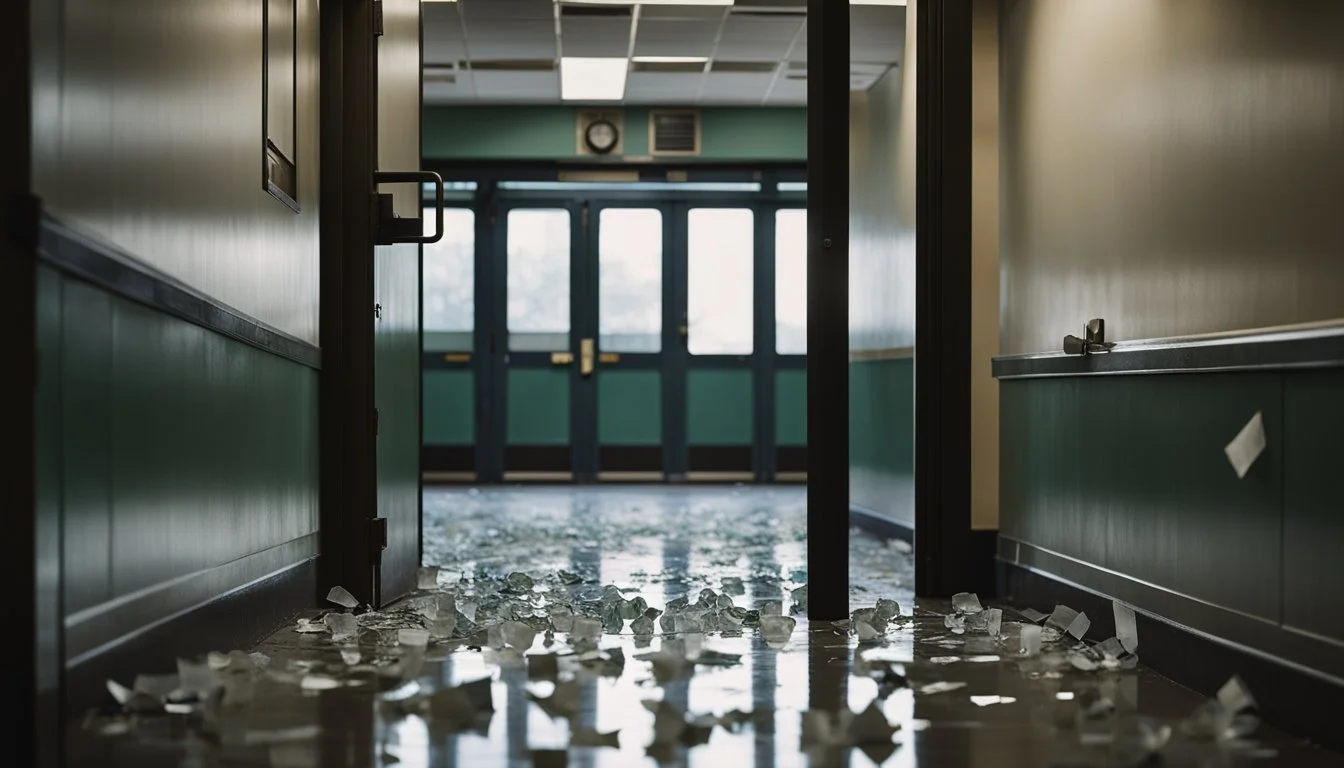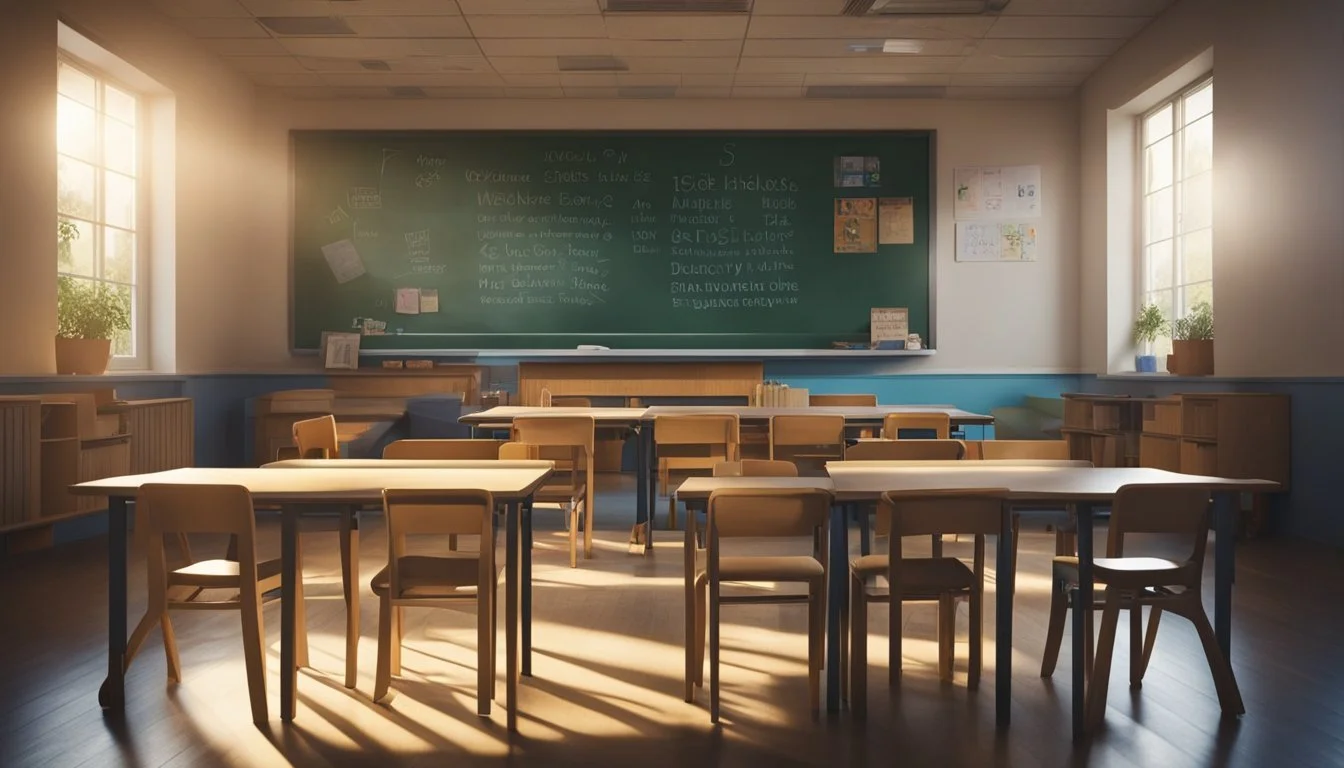8 Heart-Wrenching Films About the Sandy Hook Elementary School Shooting
Cinematic Portrayals of a National Tragedy
The Sandy Hook Elementary School shooting in 2012 left an indelible mark on American society. This tragedy sparked intense debates about gun control and school safety, while also inspiring filmmakers to explore its profound impact through various cinematic lenses.
These films aim to honor the victims, shed light on the aftermath, and examine the broader societal issues surrounding gun violence in schools. From documentaries to dramatizations, each work offers a unique perspective on this heartbreaking event. The movies and shows featured in this list provide viewers with thoughtful reflections on loss, resilience, and the ongoing struggle to prevent such tragedies from recurring.
1) Newtown: Make Sure This Never Happens Again (2016)
Newtown is a powerful documentary that examines the aftermath of the Sandy Hook Elementary School shooting. The film focuses on the resilience of the Newtown community as they grapple with unimaginable loss.
Director Kim A. Snyder spent three years in Newtown, Connecticut, capturing intimate stories from families, first responders, and others affected by the tragedy. The film avoids graphic imagery, instead emphasizing the emotional impact on the town.
Newtown features interviews with parents who lost children in the shooting, offering raw and honest perspectives on grief and healing. It also explores how the community came together to support one another in the wake of the tragedy.
The documentary addresses gun violence prevention efforts that emerged following Sandy Hook. It highlights initiatives aimed at improving school safety and pushing for policy changes to prevent future mass shootings.
Newtown serves as both a tribute to those lost and a call to action. The film encourages viewers to consider how society can work to prevent similar tragedies from occurring again.
More information on Newtown (2016)
2) Lessons from a School Shooting: Notes from Dunblane (2018)
This documentary explores the profound impact of school shootings on communities. It focuses on Father Bob Weiss, a priest in Newtown, Connecticut, who was tasked with burying eight children after the Sandy Hook massacre in 2012.
The film depicts Father Weiss's struggle with PTSD following the tragedy. It highlights a connection formed between him and Father Basil O'Sullivan from Dunblane, Scotland, who experienced a similar event in 1996.
Through their correspondence, the documentary examines the long-lasting effects of such tragedies on individuals and communities. It offers a unique perspective on healing and resilience in the face of unimaginable loss.
The film provides a poignant look at the shared experiences of two communities separated by time and distance. It emphasizes the importance of support and understanding in the aftermath of devastating events.
3) Midsummer in Newtown (2017)
Midsummer in Newtown explores the healing power of art in the aftermath of tragedy. The documentary follows a group of Sandy Hook survivors as they participate in a production of "A Midsummer Night's Dream."
Director Lloyd Kramer captures the emotional journey of the young performers as they find solace and strength through Shakespeare's timeless comedy. The film showcases how theater provides a cathartic outlet for the children and their families.
Through rehearsals and performances, viewers witness moments of joy and resilience amidst lingering grief. The documentary highlights the transformative nature of creativity and community in the face of unimaginable loss.
Midsummer in Newtown offers a poignant look at the long-term impact of the Sandy Hook shooting on the town's residents. It emphasizes the importance of artistic expression as a means of processing trauma and fostering hope.
The film received positive reviews for its sensitive portrayal of the healing process. Critics praised its ability to find beauty and optimism in the wake of devastation.
More information on Midsummer in Newtown
4) A Mother's Reckoning (2016)
"A Mother's Reckoning" is a powerful memoir written by Sue Klebold, the mother of Dylan Klebold, one of the perpetrators of the Columbine High School massacre in 1999. While not directly about Sandy Hook, this book offers valuable insights into the aftermath of school shootings.
Sue Klebold shares her personal journey of grief, guilt, and reflection following the tragic events at Columbine. She explores her son's childhood and teenage years, attempting to understand what led to his actions.
The book provides a unique perspective on the impact of school shootings on families of the perpetrators. Klebold discusses the signs of depression she missed in her son and advocates for mental health awareness.
"A Mother's Reckoning" challenges readers to consider the complex factors that contribute to school shootings. It serves as a reminder of the importance of early intervention and support for struggling youth.
More information on "A Mother's Reckoning"
5) Beautiful Boy (2018)
"Beautiful Boy" is a poignant drama that explores the devastating impact of addiction on a family. While not directly about Sandy Hook, the film's themes of loss and parental anguish resonate with the aftermath of school shootings.
Steve Carell and Timothée Chalamet deliver powerful performances as a father and son grappling with the son's methamphetamine addiction. The movie portrays the cyclical nature of recovery and relapse, mirroring the ongoing struggle families face after traumatic events.
Director Felix Van Groeningen adapts David and Nic Sheff's memoirs, offering a raw and honest look at the toll addiction takes on loved ones. The film's emotional depth and focus on family bonds echo the experiences of those affected by school violence.
"Beautiful Boy" serves as a reminder of the importance of support systems and resilience in the face of seemingly insurmountable challenges. Its unflinching portrayal of pain and hope speaks to the complex emotions surrounding tragic events like Sandy Hook.
6) American Tragedy (2019)
"American Tragedy" is a documentary that explores the aftermath of the Sandy Hook Elementary School shooting. The film focuses on Sue Klebold, mother of Columbine shooter Dylan Klebold, as she advocates for mental health awareness and suicide prevention.
Director Josh Sabey delves into the complex emotions and experiences of families affected by mass shootings. Sue Klebold's personal journey and reflections provide a unique perspective on these tragic events.
The documentary examines the broader societal issues surrounding school shootings, including gun control, mental health, and the impact on communities. It offers insights into the challenges faced by families of perpetrators and victims alike.
"American Tragedy" aims to foster understanding and promote dialogue about preventing future tragedies. The film combines interviews, archival footage, and expert commentary to create a comprehensive look at the long-lasting effects of school shootings.
7) The Children Act (2017)
"The Children Act" is a British drama film based on Ian McEwan's novel of the same name. While not directly about the Sandy Hook shooting, the film explores themes of child welfare and difficult decisions involving minors.
Emma Thompson stars as a High Court judge who must rule on a case involving a teenage boy refusing a life-saving blood transfusion due to his religious beliefs. The film raises questions about the rights of children and the responsibilities of those tasked with protecting them.
Though fictional, "The Children Act" touches on issues relevant to discussions around child safety and autonomy in the wake of tragedies like Sandy Hook. It prompts viewers to consider the complexities of safeguarding young lives.
The film received praise for its thoughtful approach to challenging ethical dilemmas and Thompson's powerful performance. It offers a nuanced look at the legal and moral quandaries surrounding children's welfare.
More information on The Children Act
8) Memorial: A Story of Three Women (2024)
"Memorial: A Story of Three Women" is a poignant documentary that explores the aftermath of the Sandy Hook tragedy through the eyes of three mothers. The film follows their journey of grief, healing, and advocacy in the years following the 2012 shooting.
Director Sarah Thompson crafts an intimate portrait of these women as they navigate life after unimaginable loss. The documentary highlights their efforts to honor their children's memories and push for meaningful change in gun legislation.
Through personal interviews and archival footage, the film offers a raw and honest look at the long-lasting impact of gun violence on families and communities. It also sheds light on the resilience of the human spirit in the face of tragedy.
"Memorial" received critical acclaim for its sensitive handling of the subject matter and its focus on the strength of the human spirit. The film serves as both a tribute to the victims and a call to action for viewers.
More information on "Memorial: A Story of Three Women"
Background and Context
The Sandy Hook Elementary School shooting was a tragic event that shocked the nation and left an indelible mark on the community of Newtown, Connecticut. It sparked intense debates about gun control and school safety while profoundly impacting survivors and victims' families.
Overview of the Sandy Hook Elementary School Shooting
On December 14, 2012, a gunman entered Sandy Hook Elementary School in Newtown, Connecticut. He fatally shot 20 children between six and seven years old, as well as six adult staff members. The incident began around 9:30 am when the shooter forcibly entered the locked school building.
Principal Dawn Hochsprung and school psychologist Mary Sherlach confronted the gunman but were killed. The attack lasted approximately five minutes before the perpetrator took his own life as first responders arrived on the scene.
Impact on the Community
The Sandy Hook shooting devastated the tight-knit community of Newtown. Families of victims, survivors, and residents faced immense grief and trauma in the aftermath. Many struggled with post-traumatic stress disorder and other mental health challenges.
The tragedy prompted an outpouring of support from across the nation. It also led to the formation of advocacy groups like Sandy Hook Promise, founded by some of the victims' parents. These organizations work to prevent gun violence and promote school safety.
Newtown underwent a long healing process, with memorials, support services, and community initiatives helping residents cope. The event continues to shape discussions about gun control, mental health, and school security policies in the United States.
Cinematic Treatment of Tragedy
Films about the Sandy Hook shooting grapple with complex ethical and artistic challenges. They aim to portray real events sensitively while respecting victims and survivors.
Portraying Real-life Events in Films
Filmmakers take varied approaches when depicting the Sandy Hook tragedy on screen. Some opt for documentary-style realism, using interviews and archival footage to reconstruct events. Others employ dramatization, casting actors to portray key figures.
The 2016 documentary "Newtown" focuses on the aftermath, following families and community members as they cope with loss. It avoids graphic recreations, instead using subtle visual metaphors and personal stories to convey emotional impact.
Fictional films inspired by Sandy Hook often change names and details while exploring similar themes. This allows creative liberties while maintaining a degree of distance from actual events.
Ethical Considerations in Depicting Sensitive Topics
Filmmakers face ethical dilemmas when portraying traumatic real-life events. They must balance artistic vision with respect for victims and survivors.
Key considerations include:
Obtaining consent from those directly affected
Avoiding sensationalism or exploitation
Providing trigger warnings for sensitive content
Consulting with mental health professionals
Some argue that any dramatization risks re-traumatizing survivors. Others contend that thoughtful portrayals can raise awareness and promote healing.
Filmmakers often donate portions of proceeds to victim support organizations or gun violence prevention efforts. This aims to ensure the project contributes positively to affected communities.









